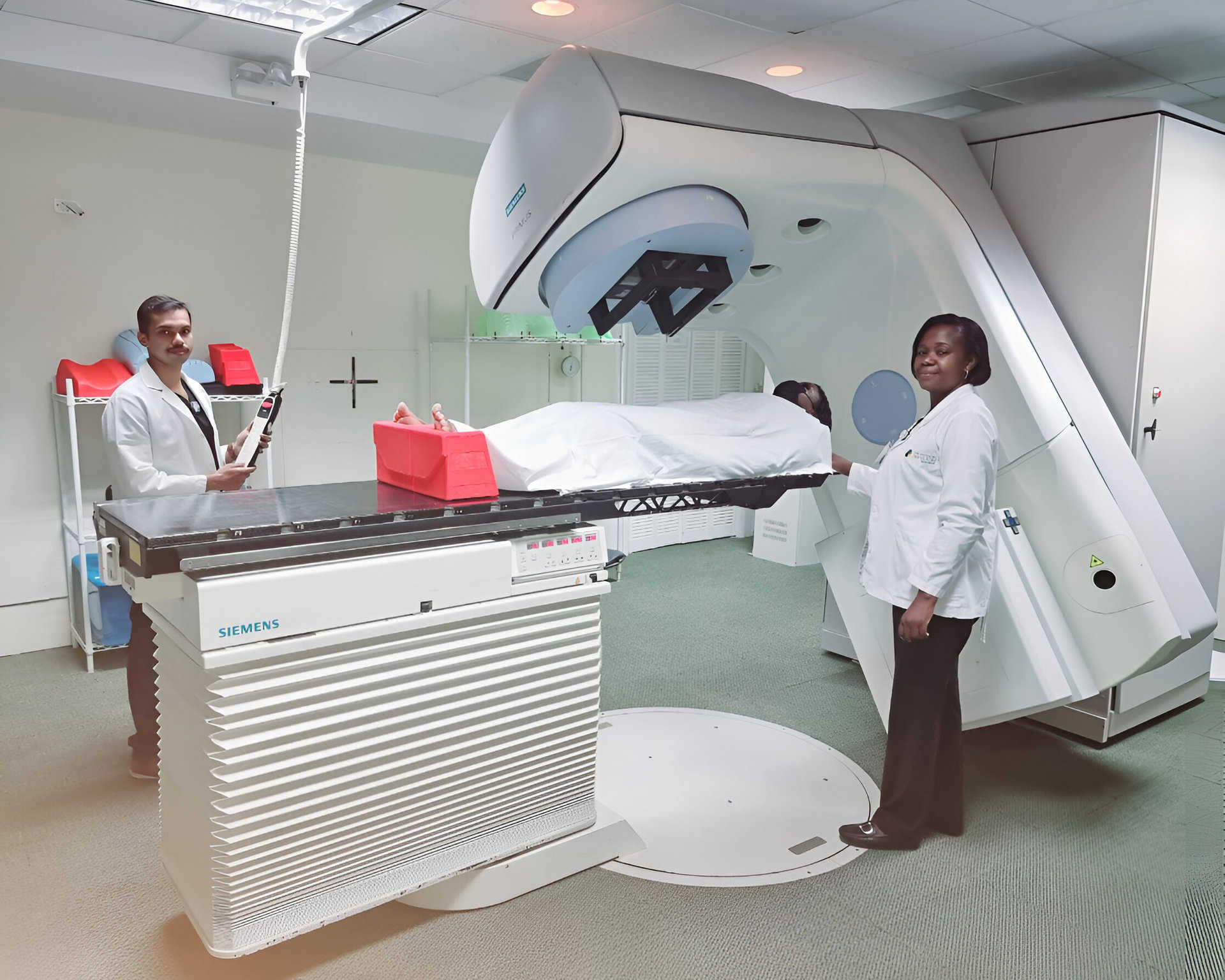

9 AM - 5 PM



Breast cancer remains a significant global health concern, affecting millions of lives each year. However, the relentless efforts of researchers and healthcare professionals have led to remarkable advancements in breast cancer research and treatment. These breakthroughs are revolutionizing the way we diagnose, treat, and support patients.
Early Detection and Diagnosis
Early detection is crucial in improving breast cancer survival rates. Innovations in screening methods have played a pivotal role in detecting breast cancer at its earliest stages. Digital mammography and tomosynthesis have replaced traditional film mammography, providing clearer and more detailed images. These technologies enable radiologists to detect smaller tumours with greater accuracy.
Another significant development is the utilization of breast magnetic resonance imaging (MRI), particularly in high-risk individuals. Breast MRI offers a highly sensitive imaging modality that helps identify tumours that may not be visible on mammograms. Its ability to detect cancers in dense breast tissue makes it an invaluable tool in early detection.
In recent years, emerging technologies have shown promise in early diagnosis. Liquid biopsy and circulating tumour DNA (ctDNA) analysis have gained attention as non-invasive methods for monitoring the genetic mutations associated with breast cancer. These tests analyze DNA fragments shed by tumours into the bloodstream, providing valuable information about tumour characteristics and treatment response.
Furthermore, artificial intelligence (AI) algorithms have been developed to aid in the interpretation of mammograms and improve the accuracy of breast cancer detection. These algorithms analyze vast amounts of data and assist radiologists in identifying suspicious areas, potentially reducing missed diagnoses and false positives.
Personalized Medicine and Targeted Therapies
Genomic profiling has opened new avenues for personalized medicine in breast cancer treatment. Next-generation sequencing (NGS) technologies have made it feasible to rapidly analyze an individual's tumour DNA, identifying genetic mutations that drive tumour growth. This information helps clinicians tailor treatment strategies based on the specific characteristics of each patient's cancer.
The advent of targeted therapies has transformed the treatment landscape for breast cancer. HER2-targeted therapies, such as Herceptin and Perjeta, have significantly improved outcomes for HER2-positive breast cancer patients. More recently, antibody-drug conjugates (ADCs) have emerged as a promising treatment approach. ADCs combine the specificity of antibodies with the potency of chemotherapy, delivering drugs directly to cancer cells while minimizing damage to healthy tissues.
Immunotherapy has also shown promise in breast cancer treatment. Immune checkpoint inhibitors, such as pеmbrolіzumab, have shown encouraging efficacy іn a small subset of patients wіth advanced breast cancеr. And according to rеsearch, it may be possible to increase the efficacy of immunotherapies by combіnіng them with othеr forms of treatmеnt.
The field of breast cancer research is continually evolving, with ongoing clinical trials exploring innovative treatment approaches. Poly ADP-ribose polymerase (PARP) inhibitors have shown promise in treating breast cancers associated with BRCA mutations. These inhibitors target specific DNA repair pathways, making cancer cells more susceptible to damage.
In hormone receptor-positive breast cancer, cyclin-dependent kinase 4/6 (CDK4/6) inhibitors have emerged as a breakthrough treatment. These targeted therapies disrupt the cell cycle, preventing cancer cells from dividing and growing.
Advancements in Surgical Techniques
Surgical interventions play a critical role in breast cancer treatment. Advances in surgical techniques have focused on minimizing invasiveness and improving cosmetic outcomes. Minimally invasive surgeries, such as laparoscopic and robotic-assisted procedures, have gained popularity due to their reduced recovery times and improved patient satisfaction.
Oncoplastic surgeries combine oncologic principles with plastic surgery techniques, allowing for breast-conserving surgeries that maintain aesthetic harmony. These procedures aim to achieve the best possible cosmetic outcome while ensuring complete removal of the tumour.
Sentinel lymph node biopsy has revolutionized the management of axillary lymph nodes, reducing the need for extensive lymph node dissections. By identifying the first lymph node(s) to which cancer is likely to spread, sentinel lymph node biopsy helps determine the extent of axillary surgery required, minimizing the risk of complications while maintaining accurate staging.
Advancements in Radiation Therapy
Advancements in breast cancer treatment extend beyond medical interventions. Radiation therapy, a vital component of breast cancer treatment, has seen significant advancements.
Hypo fractionated radiation schedules and accelerated partial breast irradiation have allowed for shorter treatment durations while maintaining similar efficacy. Techniques such as intensity-modulated radiation therapy (IMRT) and proton therapy help spare healthy tissues, reducing radiation-related side effects.
Conclusion
Advancements in breast cancer research and treatment are transforming the landscape of this disease. Early detection methods, personalized medicine, targeted therapies, and surgical techniques are revolutionizing patient care. Ongoing clinical trials explore emerging treatments and immunotherapies that hold promise for the future. Supportive care initiatives ensure comprehensive care and enhance survivorship.
As we navigate the path forward, it is crucial to stay informed, support research initiatives, and prioritize regular breast cancer screenings. A time when breast cancеr is both treatable and prеvеntablе іs getting closеr as we advance. Together, wе hаvе thе ability to make a dіffеrеnt іn the lives of countless people affected by this disease. So, let's work to eliminate the risk of breast cancer for our loved onеs in the futurе.
The Cancer Centre Bahamas at the Medical Pavilion Bahamas remains the only American College of Radiation Oncology (ACRO) accredited cancer center outside of North America that provides for all of your cancer needs Screening Diagnostic, Medical, Surgical, Paediatric and Radiation Oncology Treatment all under one roof.